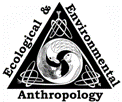Wildlife Damage Management, Internet Center for

Ecological and Environmental Anthropology (University of Georgia)
Date of this Version
November 2006
Abstract
The Japanese people face a cultural and ecological challenge in seeking a new relationship between themselves and the Japanese monkeys (Macaca fuscata). Monkeys are a major agricultural pest. Monkey habitat often lies within a short distance from fields and villages, and vice versa, especially in mountainous areas. The idealized solution is a form of coexistence where humans and monkeys somehow negotiate a harmonious compromise. A word used often in Japanese is kyosei, to live in common, implying a more intimate relation than mere side-by-side coexistence. In practice, kyosei is a word used by policy makers or scholars, but less often used by primatologists and agricultural officials. Primatologists aid agricultural extension programs that encourage farmers to implement practical measures to reduce the attractiveness of farmland and villages as feeding sites to monkeys. However, agricultural extension programs may be operationalizing kyosei by encouraging rural communities to reformulate their relationship with monkeys.

